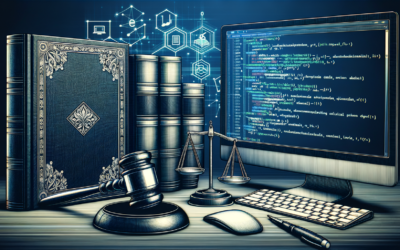Legal Intelligence
In a world where the law is becoming increasingly intertwined with new technologies, the notion of legal intelligence is emerging as a key vector of innovation in the legal sector. But what exactly are we talking about when we talk about legal intelligence? The aim of this article is to shed light on this concept and its practical application in the contemporary legal world.
What is Legal Intelligence?
Legal intelligence can be defined as the strategic exploitation of a body of legal data through the use of advanced technologies such as artificial intelligence, big data and jurimetry. It supports decision-making, the optimization of legal operations and the preventive management of legal risks. This discipline is part of a dynamic of constant evolution in the law and its practices.
Applications of Legal Intelligence
Optimizing Risk Management
Legal intelligence enables companies to better understand the legal and regulatory environment in which they operate. Using tools such as legal analytics and legal project management, lawyers can anticipate potential litigation and guard against unnecessary legal risks.
Improving Operational Efficiency
By automating routine tasks via solutions such as court process automation and contract lifecycle management, legal departments gain in efficiency and can concentrate on their higher value-added activities.
Innovation and Development of New Services
Legal players are using legal intelligence to create new services, such aselectronic authentication and signature, andonline dispute resolution platforms, thus diversifying their offering and better meeting the expectations of modern customers.
Frequently asked questions
Here is a list of frequently asked Legal Intelligence questions.
What is the impact of Legal Intelligence on the legal profession?
The impact is significant: productivity gains, support for decision-making, and tools to help predict procedural outcomes. Lawyers are increasingly interested in the potential of legal innovation.
How can Legal Intelligence promote compliance?
It enables continuous monitoring and adaptation to standards, using technologies such as digital compliance to ensure regulatory and ethical compliance in real time.
Does Legal Intelligence replace human intervention?
No, it’s designed to complement and enhance human expertise through data accuracy and rapid analysis. Technologies like legal bots assist professionals without replacing them.
Legal intelligence is increasingly establishing itself as a distinct field within legal practice, combining legal expertise and technological innovation. It represents not only a competitive advantage for legal practitioners, but also an undeniable benefit for customers, who benefit from more accessible and personalized services.




